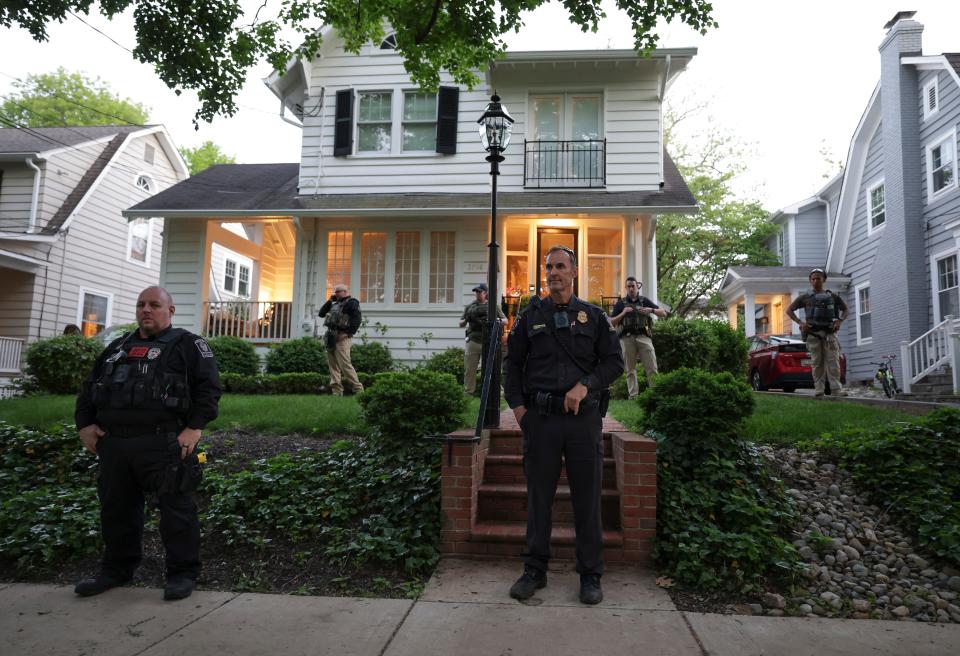Biden administration proposes $38 million for judicial security after Supreme Court protests
WASHINGTON – President Joe Biden proposed $38 million in new funding to protect federal judges through the Department of Justice, amid growing concerns about the safety of court officials.
The spending blueprint for the year starting Oct. 1 – which Congress will debate for months and could change – calls for an additional $28 million for the U.S. Marshals Service to protect judges, including Supreme Court justices who are monitored around the clock.
Justices received a flood of threats that followed the release of a draft Supreme Court decision that eventually overturned the landmark abortion decision Roe v. Wade.
The budget proposal also calls for $10 million to fund a recently created grant program for state and local governments to provide security for active and retired federal judges and their relatives, after the 2020 shooting death of a federal judge's son by a lawyer with a case before the judge.
The Justice Department proposals would come on top of $19.4 million the Administrative Office of the U.S. Courts requested for Supreme Court security.
"Securing these resources is critical to advancing that mission in service of the American people," Attorney General Merrick Garland said in a statement.

What's in the budget proposal for the U.S. Marshals Service?
The budget proposal for the Marshals Service would establish a new Office of Protective Services to provide continuing residential security for Supreme Court justices and monitoring of security cameras at residences. The money would fund 53 jobs, including 51 deputy U.S. marshals.
"The U.S. Marshals Service has $28 million to develop a program for protecting the federal judiciary including the Supreme and the families," and support the agency's judicial security command center, said Jolene Ann Lauria, the assistant attorney general for administration.
In 2022, Garland tapped the Marshals Services to provide 24-hour security for the justices amid a flood of threats and protests that followed a leaked draft of the opinion that would overturn the landmark abortion decision Roe v. Wade.
Protesters took the unprecedented step of marching to justices' homes in May 2022. Republicans have argued the protests threatened “mob rule” and were potentially illegal by aiming to influence the justices since the draft's release. Some Democrats have cheered the protests, but others condemned vigils held outside justices’ homes as “outrageous” and no way to plead the case.
Conservative protesters have also threatened judges. The federal judge's son was killed by a self-described "anti-feminist." State and federal judges in former President Donald Trump's criminal and civil cases have been threatened by his supporters.
What's in the budget proposal for state and local governments?
The grants could be used to remove or redact publicly available personal information about judges, expand privacy programs and prevent the release of information about judges.
The grant program is named for the 20-year-old son of U.S. District Judge Esther Salas, Daniel Anderl, who was shot and killed by a former litigant at their New Jersey home. The judge's husband, Mark Anderl, was also critically wounded.
Congress authorized the grant program in December 2022.
This article originally appeared on USA TODAY: Biden proposes $38M for judicial security after Supreme Court protests
